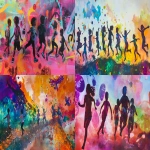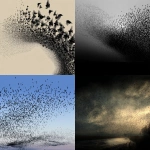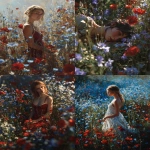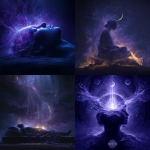Explore the Best AI Image Gallery

Harnessing AI Imagery: Transforming Marketing Strategies
In today's fast-paced digital landscape, where visual content reigns supreme, AI-generated images are quickly becoming a foundational tool in marketing strategies. This revolutionary technology not only enhances creative processes but also redefines consumer engagement. From personalized marketing campaigns to improved visual aesthetics, AI imagery is transforming how brands communicate and connect with their audiences.
The Impact of AI on the Creative Industry
The emergence of AI as a creative partner has sparked discussions about its implications for artists, designers, and marketers alike. By analyzing vast datasets, AI algorithms can generate images that resonate with specific consumer demographics. This capability allows brands to tailor their visuals, making campaigns more effective.
Furthermore, AI tools like DALL-E and MidJourney enable non-artists to create stunning visuals with minimal effort. As a result, creativity is no longer limited to those with traditional artistic skills, expanding the pool of potential creators significantly. This democratization of art raises intriguing questions about originality and authorship, challenging the very essence of human creativity.
Potential Uses of AI-Generated Images in Marketing
AI-generated imagery can be utilized in various marketing strategies, enhancing both the creative process and overall effectiveness. Some potential applications include:
- Social Media Campaigns: Engaging visual content is vital for social media success. AI can help create unique images tailored to specific platforms, ensuring brands stand out in crowded feeds.
- Product Visualization: AI can simulate various product designs and packaging options, allowing for testing and feedback before actual production, thus saving time and resources.
- Dynamic Content Generation: AI can generate personalized images based on user data, leading to more relevant advertising and increased conversion rates.
- Brand Storytelling: Visual narratives can be enhanced with AI-generated imagery, providing deeper engagement and emotional connection with audiences.
- Market Research: Analyzing consumer response to AI-generated visuals can provide insights into market trends and preferences, aiding in strategic decision-making.
Ethical Considerations
Despite the advantages, the rise of AI in marketing poses significant ethical concerns. Issues surrounding copyright, intellectual property, and the potential for misuse of AI-generated content have become focal points of discussion.
For instance, if an AI generates an artwork that closely resembles an existing piece, the question arises: who owns the rights to that image? As laws and regulations adapt to this technological shift, navigating these ethical waters will require careful consideration.
Moreover, the potential for creating misleading or harmful visuals raises questions about consumer trust. Brands must prioritize transparency and ensure that AI tools are used responsibly, respecting both the audience and the artists whose work could be at risk.
Future Trends in AI Imagery
Looking ahead, the future of AI-generated images in marketing is vibrant and full of possibilities. Several trends are likely to shape its trajectory in the coming years:
- Increased Personalization: As AI tools continue to evolve, so will their ability to analyze consumer data, leading to even more personalized and targeted marketing strategies.
- Collaboration with Human Creatives: Rather than replacing artists, AI is likely to enhance human creativity. Collaborations between AI and creative professionals can lead to innovative outcomes that push boundaries.
- Virtual and Augmented Reality: AI-generated images will increasingly play a central role in immersive experiences such as virtual and augmented reality, providing brands with innovative ways to engage consumers.
- Enhanced Data-Driven Marketing: AI's data analysis capabilities will allow marketers to predict trends and adapt campaigns on-the-fly, optimizing their strategies in real-time.
- Sustainability Through Efficiency: By streamlining the creative process and reducing waste, AI imagery can contribute to more sustainable marketing practices.
In conclusion, AI-generated images are not just a fleeting trend in marketing; they represent a fundamental shift in how brands can connect with their audiences. As the creative industry navigates the opportunities and challenges presented by this technology, embracing responsible practices and ethical considerations will be crucial to harnessing its full potential. The collaboration between AI and human creativity promises to unlock new realms of imagination, crafting marketing strategies that are not only innovative but also effective.




](https://images.ai-img.art/thumbnails/150/c2241c1eabdcb7b9a98be19a7e8d850b6cffe0e0c91c1ccda8dd807e2a96b187.webp)













](https://images.ai-img.art/thumbnails/150/44b76c49c47b4c47f13eac7883c63827d3f89aa77fe64ce0cbecb9d3ce434499.webp)

















](https://images.ai-img.art/thumbnails/150/47d44e177f427ea6b32f96ea225db96c5158850a0cf01d1bad93e45dd4594430.webp)









](https://images.ai-img.art/thumbnails/150/09ccae5e68e2b6da6b5da87ef69f7eb09e80c99ca39ba886c5c3773cbb3b89ba.webp)
](https://images.ai-img.art/thumbnails/150/c48401bc3fad7ff7f2dbd37b894d3f53cb42d5072dfacb8bfdcdeeef28a29b04.webp)

